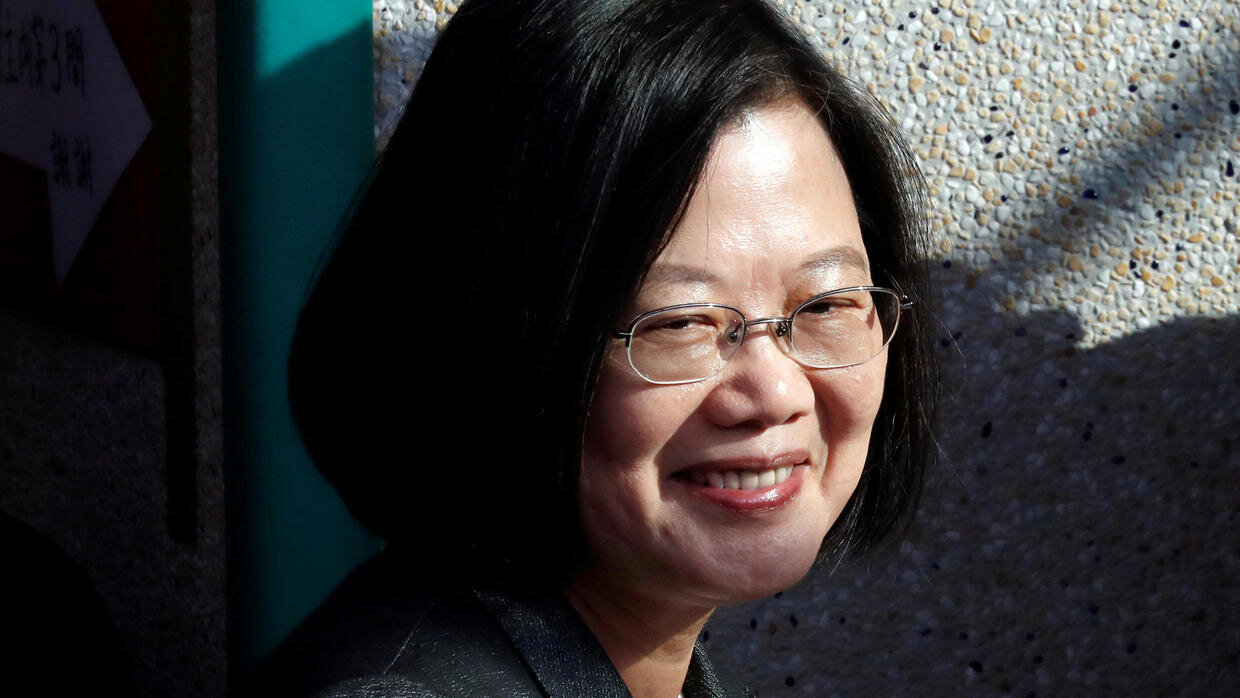One China Policy (一個中國) and U.S.-Sino Tensions By Jun Kwon
After President-elect Donald Trump accepted a congratulatory phone call over his victory in the presidential election from Taiwan’s President Tsai Ing-wen, tensions have run high between the United States and China. At the center of these tensions is their One China policy issue. A week before taking office, Mr. Trump has fueled the already strained relations between the U.S. and China by saying that that “everything is under negotiation including one China.” in his interview with The Wall Street Journal.
What on earth is One China policy? Why does this simple phrase "One China" create such a huge controversy and potential instability in the U.S.-Sino relations as well as in international security?
One China policy is a principle from China’s point of view that there is only one China and that Taiwan is part of China and part of the PRC’s (the People’s Republic of China) sovereign territory. The PRC’s adamant standpoint on the One China principle is clearly manifested in Foreign Ministry spokesman Lu Kang’s response to Mr. Trump’s Wall Street Journal interview. China Daily reported that Lu said “The government of the People’s Republic of China is the only legitimate government representing China… and that is the fact acknowledged by the international community, and no one can change it.”
The acceptance or rejection of this principle is a major factor in diplomatic relations between China (the People’s Republic of China) , which governs Mainland, and other countries. China requires all countries seeking diplomatic relations with it to acknowledge its version of One China policy and to refrain from maintaining relations with Taiwan (the Republic of China).
The United States withdrew diplomatic recognition from Taiwan in 1979 when the U.S. formally recognized Beijing as the sole government of China and officially established diplomatic relations with China. Even though the United States has maintained unofficial or quasi-diplomatic relations with Taiwan under the Taiwan Relations Act since 1979, it has abstained from making any official contacts with the Taipei government in the hope of avoiding tensions with China.
Taiwan’s (the ROC) position toward One China policy is significantly divided. This issue in Taiwan is polarizing enough to bifurcate the Taiwan society into two separate groups. The Pan-Blue Coalition parties, led by the KMT (the Nationalists or the Kuomintang), accept One China policy, but they do not equate China with the PRC. Before democratization in the 1980s and 1990s, the authoritarian KMT government actively claimed that the ROC was the only legitimate “One China” while the PRC was illegitimate. For instance, Nanjing appeared in official maps and publications as the capital while Taipei was labeled as the provisional capital.
Recently, the government dropped such references. Even though these claims are no longer actively pursued, the KMT continues to maintain its version of the “One China” principle by officially claiming sovereignty over all of its territory before 1949. For instance, the former President Ma Ying-jeou (the KMT, 2008-2016 in office) stated that “One China is the Republic of China.”
Photo by Tyrone Siu/Reuters
The Pan-Green Coalition parties, led by the Democratic Progressive Party (DPP), are more hostile to the policy, as they view Taiwan as a country separate from China. They claim that Taiwan should declare and pursue de jure independence. Tensions between China and Taiwan ran so high that both sides across the Taiwan Strait came closer to military conflicts during incumbency of the former President Chen Shui-bian (from the DPP, 2000-2008 in office).
Taiwan’s President Tsai Ing-wen (the DPP) since taking office in May, 2016 has not made any official strides in pursuing the goal of de jure independence. China seemed to have felt more comfortable when Taiwan’s government claimed legal authority over all China, because at least then there was no questioning of whether Taiwan belonged within the Chinese nation.
Why does China dispute Taiwan’s de facto sovereignty? Why is China so obsessed about One China Policy?
First, China views Taiwan issue or Cross-Strait relations as an unequivocal Chinese domestic issue which should not be interfered or influenced by other countries. There is no doubt that Mr. Trump’s rhetoric on Taiwan could be seen by the Chinese as foreign attempts to intervene in the Chinese domestic affairs. Nothing is angering China more than perception of foreign intervention into its domestic affairs.
Second, if Taiwan leaves out of the Chinese nation by obtaining international recognition as a de jure sovereign state with the U.S. and Mr. Trump’s assistance, it is a territory that originally left China’s authority due to the colonial annexation in 1895. It reminds China of “the century of humiliations” after getting control back over Hong Kong and Macao. And it would undermine the claim and goal of national unity pursued by the Chinese Communist party leadership.
Third, if Taiwanese are allowed to leave the Chinese nation, then why not Tibetans or Uighur Muslims or even Cantonese? Taiwan independence could have a domino effect on independent movements of other minority nationalities that would break up China (the PRC).
Any attempt of Mr. Trump’s administration to use One China policy and the Taiwan status as a negotiation tool will surely shake up the very foundation that underlies the U.S-China relations.
Jun Kwon is Assistant Professor of Government and Chair of International Studies at Utica College






